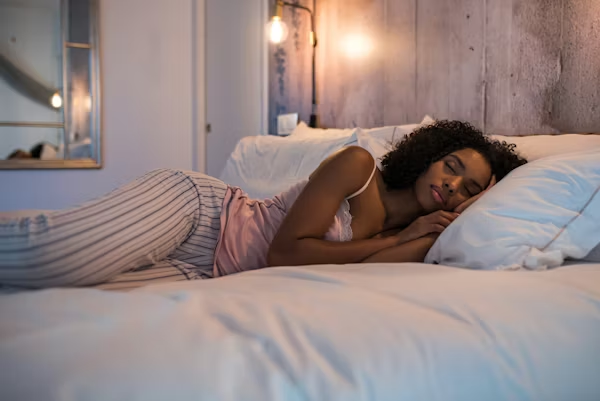Did you know herbal teas can ease your menstrual cramps and improve hormonal balance? Let’s admit it, periods are not fun. From cramps that make you want to curl up in bed all day to the nasty mood swings, that time of the month can feel like a physical and emotional rollercoaster. Some women pop painkillers every 4 hours, while some go with the hot water remedy just to get through the day.
Menstrual cramps can ruin your day, and hormonal imbalance can cause a hectic lifestyle for women.
Herbal teas are nature’s gift to humanity. These beverages are made from herbs, spices, or roots that are infused in water fully raw or processed. You can find many of the ingredients in your kitchen cabinet, your backyard, or even the local market you visit every other weekend.
In this article, we’ll explore how herbal teas can improve your menstrual health and share some DIY recipes.
Do Herbal Teas Really Work for Menstrual Health?
Yes! Certain herbs have natural anti-inflammatory, antispasmodic (reducing muscle spasms), and hormone-balancing properties. The properties in these herbal teas can help reduce cramps and relieve bloating and discomfort.
For centuries, before science caught up with traditions, herbal teas have been used to support women’s health, especially African women. Our grandmothers and mothers trust in the potency of ginger, cloves, African basil, and hibiscus leaves for relief. Today, many women have made it a lifestyle to drink herbal teas.
Herbs are best cut in the morning, after the dew has dried but before the midday heat, because the morning is when the essential oils are more concentrated in the leaves and flowers.
Key Benefits of Herbal Teas for Women
- Reduces menstrual cramps and bloating: Herbs like chamomile, cinnamon, ginger, and raspberry leaves help relax the uterine muscles and reduce water retention.
- Supports hormonal balance: Fennel, ashwagandha, spearmint, fenugreek, and licorice root found in some herbal teas can help regulate hormones, which may ease the symptoms of PMS and menopause in some women.
- Stress reduction: Chamomile, lavender, lemon balm (Jogbo in Yoruba & Nchuanwofia in Igbo), and turmeric help calm the mind and body.
- Improves digestion: Ginger, cinnamon, and turmeric soothe the stomach, reduce bloating, and ease nausea.
- Overall health and wellness: herbal teas are natural alternatives for painkillers. They boost hydration and the immune system, support heart health, and contain minerals that help combat deficiencies.
Chamomile tea has calming effects and properties that reduce testosterone in PCOS.
DIY Herbal Tea Blends You Can Try
Ginger Tea

Ginger tea works as an anti-inflammatory and pain reliever, reducing nausea and aiding digestion.
How to prepare: Add sliced or grated ginger and water to a pot, and bring it to a boil over high heat. Let it cool down, then strain. it cools down, then strain. You can add honey or lemon as desired.
Blend: Ginger and cinnamon are the best herbal teas for menstrual pain and fatigue. Just cinnamon sticks while boiling your ginger.
Chamomile Tea

Chamomile eases stress and helps with sleep and mood swings during periods. In a research by the National Institute of Health, Chamomile tea contains anti-spasmodic properties, proven to aid in the relief of menstrual cramps.
How to prepare: Add dry chamomile leaves in water and bring to a boil for 5 minutes.
Blend: Chamomile and peppermint leaves are a wonderful blend that relaxes your mind and body.
Hibiscus Tea (Zobo leaves)

Hibiscus tea is effective for PMS, as it may affect your menstrual cycle. Its antioxidant properties support hormonal balance, reduce blood pressure, and replenish iron lost during menstrual flow. According to the Centre for Vascular Medicine, herbal teas like Hibiscus tea also has some anti-inflammatory components that can help minimize the discomfort and pain that comes with menstrual cramps.
How to prepare: Rinse dry hibiscus flowers and boil for 10-15 minutes. Sieve and leave to cool before drinking.
Blend: Combine hibiscus flowers with fennel to brew a refreshing, hormone-friendly tea.
Lemongrass Tea
This It has been a common ingredient in herbal teas across Africa for ages. For women, it has anti-inflammatory properties that help relieve menstrual pain and bloating. women, it has anti-inflammatory properties used to relieve menstrual pain and bloating.
How to prepare: Soak fresh or dried lemongrass in hot water for 5 minutes. You can also boil directly on heat. Strain and enjoy it warm or cold.
Blend: Citrus, ginger, and cinnamon can be added for a simple brew.
Hibiscus tea is not suitable for pregnant women, breastfeeding mothers, or women trying to conceive.
Precautions
Not all herbal teas are suitable for everyone. Nursing mothers, pregnant women, and women with health conditions should be aware of their individual health concerns and consult their doctor before trying herbal teas as remedies.
Lifestyle Tips to Complement Herbal Teas
Herbal teas are most effective when paired with healthy habits:
- Stay hydrated while taking any of these herbal teas.
- Do light exercise or stretches to ease cramps.
- Try heat therapy by putting a hot water bottle or heat wrap on your lower abdomen for extra comfort.
- Maintain a balanced diet with iron-rich foods like beans, pumpkin leaves, fish, eggs, and nuts. To enhance iron absorption, pair with food rich in vitamin C, like tomatoes and oranges.
Nature already provides gentle remedies for your well-being. Small, consistent habits like brewing herbal teas can make your periods more manageable. Each cup of fiery and comforting brew reminds you that your body deserves care and comfort.
Next time you are feeling cranky or bloated and sensitive, like a little poke of the finger will trigger a gush, make a cup of herbal tea, sip it slowly, and let nature work its magic.
Let’s make wellness a community ritual.
Have you tried any of these teas for cramps? Share your favorite recipe in the comments below.







